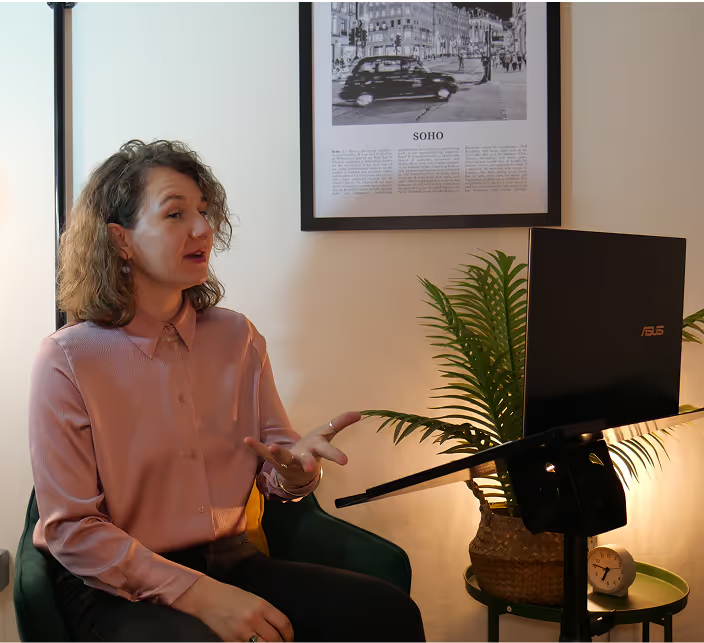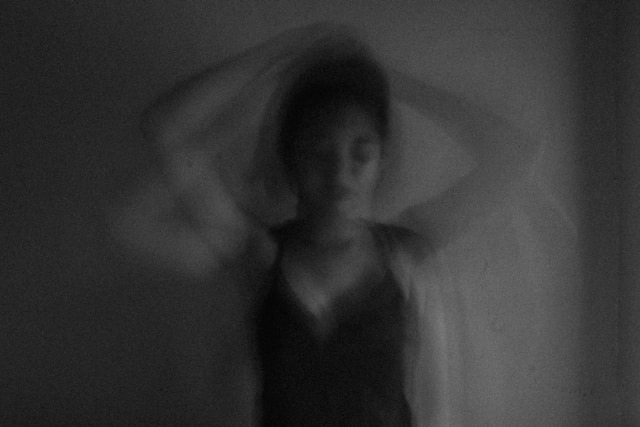EMDR Therapy Explained
Discover how EMDR can transform your healing journey and alleviate emotional distress effectively.

Understanding eye movement desensitization and reprocessing
EMDR is a powerful therapeutic approach designed to help individuals process and heal from traumatic experiences. By using targeted bilateral stimulation, this method enables the brain to reframe and reduce the emotional impact of distressing memories.
Learning about you
In the initial phase, I will take time to learn about your background. This may include discussing your current symptoms or areas of distress, any medications you are taking, the presence of addictions or OCD, and the types of support you already have in place.
This process helps me assess whether EMDR is the most suitable approach for you. It takes place during the first session. Completing this step in advance can help streamline your journey, allowing more of your session time to be focused on treatment rather than information gathering.

Theory and Discovery
In this stage, I’ll guide you through breathing techniques and help map the memories and sensations stored in your body. This isn’t counselling, but a safe way to label feelings without lengthy explanations or shame.
You’ll rate the intensity of these feelings (0–10) and share how you’d like to feel instead, so we can replace discomfort with empowering emotions. Because EMDR is non-verbal, it’s especially helpful for those who find talking difficult, including people with ADHD, ASD, or those experiencing loss, stress, or anxiety.

Targeting the memories
In the same or the following session, I will invite you to locate the first listed out feeling related to your memory in your body and tell me how intensely you're feeling it there.
Then, I will apply the bilateral movements and your eyes are going to be fixed on the light of my special pen; by doing so the emotional charge will gently but surely will leave your body.
This step will be repeated as many times and in as many sessions as required until the emotional charge is lifted from all your feelings related to your memory (or memories) and you are able to connect with more positive thgouhts and feelings.

Re-evaluation
At the start of our each session, we will take some time to reflect on how you have been coping since our previous work together. This is the way to gauge how you're moving forward.
Together, we will decide whether it feels right to continue working with the same memory or whether you are ready to focus on a different experience. This collaborative approach ensures that the pace and direction of the sessions remain supportive of your individual healing journey.

How will you feel afterwards?
After an EMDR session, the process often continues to work in your awareness, deepening resolution and fostering more positive feelings. While everyone’s experience is unique, many people notice relief during or soon after a session, with any intensity usually settling within 24–48 hours.
It’s common to feel tired afterwards, so giving yourself time to rest sometimes leading to deep, restorative sleep can support the healing process and help you wake feeling refreshed and more positive.
.avif)
Liam's Journey
"I’ve used Ilona’s services for a long time and it’s been a great help - not just through trauma but to make sense of a busy brain and life.
Recently I required in depth expertise around new trauma and PTSD and Ilona recommended EMDR. We combined this with my ongoing therapy. It allowed my brain to deal with the events and flashbacks through talking but with EMDR it helped reduce the intensity of those flashbacks and images.
For me the EMDR close to the event was a huge help when combined with talking therapy as I could not focus on anything else - I had to have a reduction in the intensity and an outlet for talking to be able to start to function again. Ilona’s approach helped this to happen."
How it works
Introduction Call
We begin with a complimentary introductory call to assess our compatibility and your needs.
Personalised Approach
In our sessions, I customise my methods to suit your unique circumstances and goals.
Goal Setting
Together, we will set achievable goals and outline the steps to reach them.
Ongoing Support
I provide non-judgmental support throughout your journey, ensuring you feel empowered and understood.
Take the First Step
Begin your path to recovery today by scheduling your complimentary 15-20 minute introductory call to determine if we are well matched.
.avif)
.avif)
.avif)
.avif)
Latest mental health and wellbeing resources
Explore helpful articles and insights



